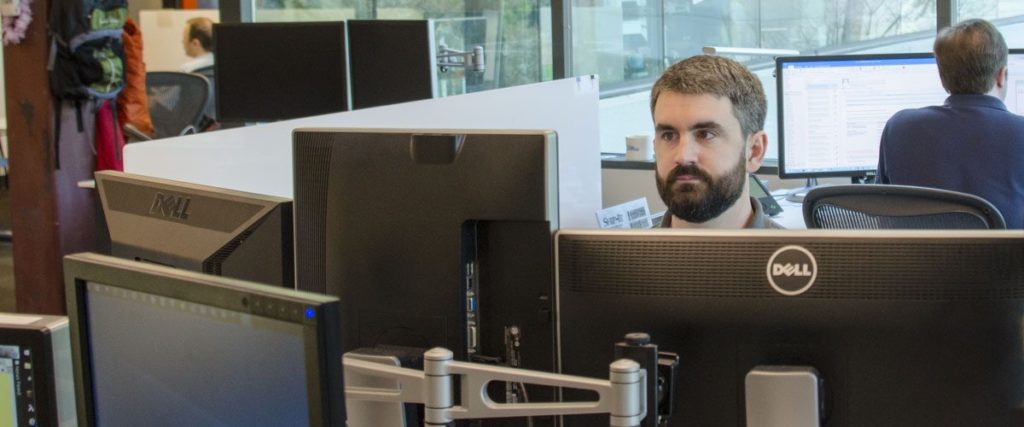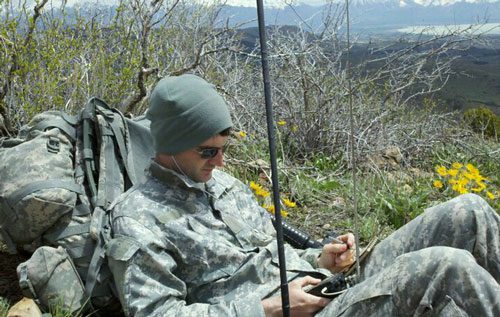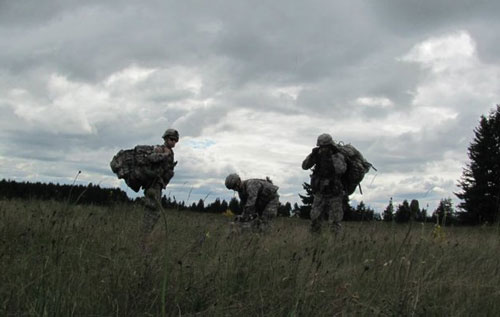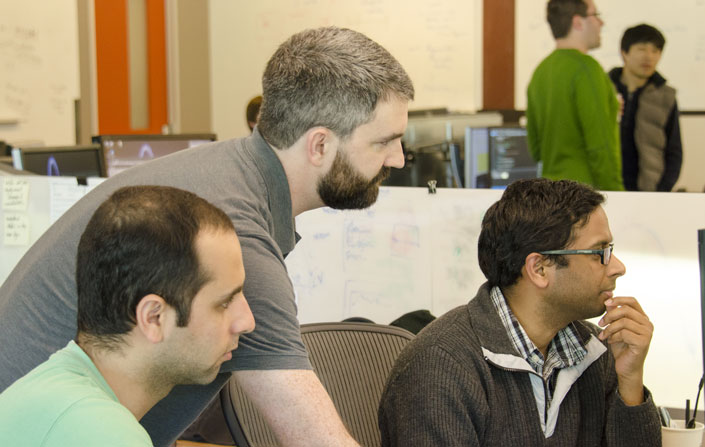In their own voice: Paying it forward

Mark Switzer
Current Title: Software Engineer II, Microsoft
Former Title: Staff Sergeant, Army
I’d planned to make the military my career; I was a staff sergeant in the U.S. Army, where I was an Arabic cryptologic linguist, with a specialty in Iraqi dialect, for military intelligence. My specialty was Arabic and Iraqi dialects, and I was deployed to both Iraq and Afghanistan. I was going to become an Army instructor for the noncommissioned officers academy and then follow that up with being commissioned as a warrant officer. But things don’t always work out how you plan.
The Army asked me to move into a recruiting position instead of an instructor position, which wasn’t the best fit for me or what I saw myself doing with my career. I felt like the years I spent training to be an intelligence professional in military intelligence would be wasted on recruiting. Even though I didn’t know what I was going to do next, I knew I couldn’t in good conscience spend the next three years of my life in recruiting. It just wasn’t my passion. That decision was a tough moment for me. I was 11 months from getting out, and I had absolutely no idea what I was going to do. I had a background in intelligence, I had Arabic and Iraqi language abilities, I had a background in computer science from Virginia Tech — I knew I could do a lot of things, but I didn’t have anything planned or prepped.
Mark Switzer
Then, an MSSA flyer was dropped off on my desk. I was a platoon sergeant, and I was asked to pin it up on our company board. So I was the first one to see it, and I said to myself, “Hey, this is what I want to do. I’m going to go for this and I am going to get it.” MSSA gave me confidence in myself and my skills that I was set up for success to transition out of the military, so that took a lot of the stress out of the equation.

A lot of what MSSA taught me was about how to translate who I am and what I’ve learned in the military into something that a corporate entity cares about. Saying that I know how to shoot a gun is not useful to a hiring tech company at all. But saying I have the discipline to learn new skills in limited time frames and execute missions with vague input points to my value as a potential employee. Microsoft isn’t looking at me just because I have a computer science background or just because I’m former military. They’re looking at someone who can say, “I served in the military, and now you want to hire me because there’s a crucible that I’ve made it through that makes me different than just a straight-out-of-college hire.” It was that moment where I knew how to talk about my time in the service and make it valuable and attractive to recruiters that I realized just how important MSSA is.
Once I truly recognized the importance of the program, I chose to become an MSSA mentor myself and have been volunteering with MSSA since I joined Microsoft in June 2014. I knew what the struggle felt like for folks coming into the program, and when I thought about all the successes that I had, and all the mentors that helped me, I thought it would be really nice if I could pass that information backward. What better conduit than straight from the source? There have been some graduates that have said, “Hey, I took your advice and now I work at Microsoft.” To know that I was at least able to get them pointed in the right direction has been really rewarding.

My biggest piece of advice to service members in the program is, more than anything, you have to be 100 percent committed to your own success. This is an opportunity that you’ve been granted. Just making it through the day and passing the test isn’t enough. You have to have the drive; you have to have the passion. You can’t fake that in an interview. Having that drive, that passion, is irreplaceable. That’s the one thing I start with: You aren’t guaranteed a job after graduating from MSSA, but if you put your all into the program — and into your transition in general — it’s going to work out for you.
I think a lot of military people worry about what the workplace is like outside of the military. It is very different and, in some ways, very disconnected. In the military, everything is together; everything is connected. A life outside of the military doesn’t really work that way. People show up and they’re there to work. They have their professional personas, and folks share as much or as little as they’d like with you. Not that you can’t have friends, but you won’t have that same bond with your colleagues as you’re familiar with in the military. A lot of the struggles that military people have is in losing that connectivity. I think Microsoft actually has that. As you’re adjusting to your new work environment and new team, the military support at Microsoft is phenomenal. There’s email distribution groups, people get together to BBQ and go to the movies. There’s always someone with a military background to help you. Even MSSA is powered by this concept that we’re all military, all together.
It’s important for people to realize that Microsoft doesn’t just care about your military service so they can get the bottom line out of you. They actually provide quite a bit of military support — and that sense of family. A lot of former service members still want to feel that sense of closeness to someone who understands them, who understands where they’re coming from. I think Microsoft is really considering both the impact that military experience brings to an organization as well as the impact of the transitioning experience on the individual — and that makes them unique.

